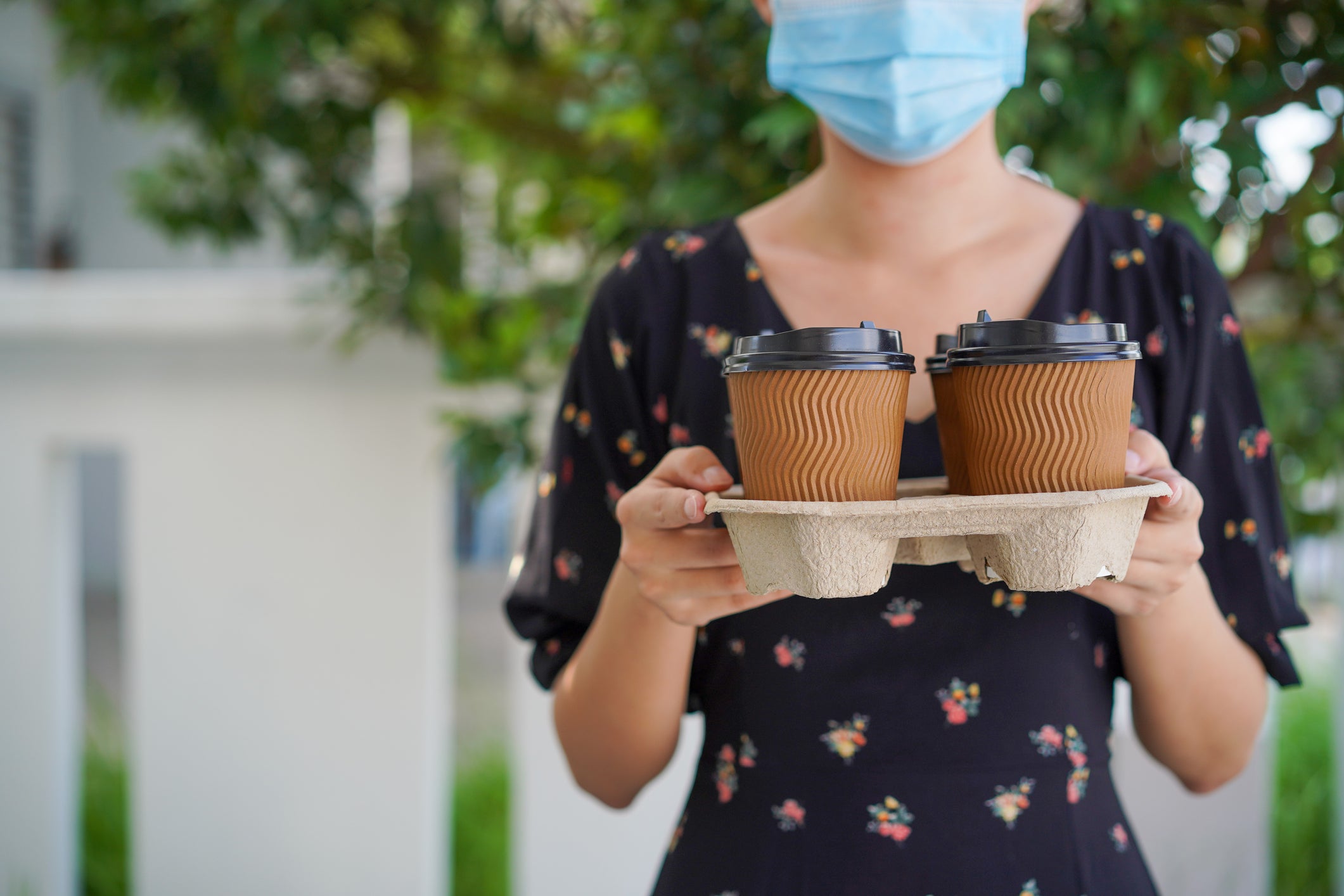How to look after someone with coronavirus at home
‘Consider wearing a face covering when in shared spaces,’ says government website

As the vaccination rollout gets underway across the UK, thousands of people are still catching and suffering from the effects of Covid-19.
A new variant of the virus was identified last year as being up to 70 per cent more contagious than the original, leading to 75 per cent more coronavirus patients in hospital now compared to the previous peak in April last year.
Now, the UK currently has the highest death rate per million people from Covid-19 of any country in the world, new data has revealed, with an average of 935 daily deaths over the last week.
But what should you do if someone you live with tests positive? And can you still take care of them while protecting yourself?
Here’s everything you need to know about looking after someone with coronavirus at home.
Wear a face covering in shared spaces
Whether you’re simply making someone lunch or boiling the kettle for them, if you’re in a shared space, you should wear a face covering in order to protect yourself and the person you’re caring for.
“This is because the virus is spread by droplets and aerosols,” explains Dr Penny Ward, chair of the Faculty of Pharmaceutical Medicine’s Education and Standards Committee.
“Therefore, you should wear a mask to reduce the spread of these droplets and aerosols at home.”
This means you should try to wear a mask in the kitchen, bathroom and any other living space you might share with someone who has been infected.
Look after their mental wellbeing
When you or someone you live with has coronavirus, the government insists that everyone in your household must self-isolate for 10 days, meaning you cannot leave your home for exercise or food shopping or anything else, aside from very limited exceptions such as seeking emergency medical care.
Given the toll that this can take on one’s mental health, it is hugely important to take steps in order to monitor this.
The organisation Every Mind Matters suggests keeping in touch with family and friends over the phone and planning out the full 10 days of isolation e.g. scheduling specific days to video chat with individual family members.
You can read more tips for managing your mental wellbeing during the pandemic here.
Bring them regular food and water
It’s crucial not to eat at the same time as someone with coronavirus as this will make it difficult to self-isolate and prevent transmission, warns Dr Ward.
Given that the government advises that someone with Covid-19 should try to stay in one room in the home, it’s important that whoever else lives there brings them regular meals and fluids.
“Do not eat meals together, simply bring them to their door and leave.”
Clean any shared spaces regularly
“There needs to be frequent cleaning of all touched surfaces with disinfectant,” says Dr Ward.
Not only will this prevent the person with Covid-19 from spreading the illness to others within the home, but keeping the home clean will also help provide a sense of safety and security while everyone is isolating together.
“It is particularly important to give them separate bed linen and towels as well,” adds Dr Ward.
If you need to enter the room where the person who is unwell is isolating, be sure to wear gloves when touching any surfaces and dispose of them in a double-wrapped bag afterwards, the government website advises.
Ventilation is also important when it comes to protecting yourself, says Dr Ward. You should try to keep windows and doors open throughout the day if possible.
Bring them over-the-counter medication as and when they need it
On the NHS website, there are several tips for managing coronavirus symptoms at home that can be useful if you’re looking after someone who is unwell with the virus.
In addition to ensuring that they get lots of rest and drink plenty of fluids, the NHS also advises bringing them paracetamol and/or ibuprofen if they feel uncomfortable.
If they have a cough, you could also try bringing them some cough syrup or giving them a teaspoon of honey, the NHS website adds.
Seek medical advice if neccessary
In some instances, it may be necessary to seek medical advice and support when taking care of someone with coronavirus.
The government website advises you to seek prompt medical attention if the illness of someone in your household is worsening, e.g. if they suddenly become breathless or are experiencing chest pain or a loss of consciousness. In these instances, phone 999.
If you do not think the person you’re caring for needs emergency attention, but they still need medical advice, phone the NHS non-emergency line on 111.
For more information, read the NHS guidance on when to seek medical help for coronavirus here.
Join our commenting forum
Join thought-provoking conversations, follow other Independent readers and see their replies
Comments
Bookmark popover
Removed from bookmarks